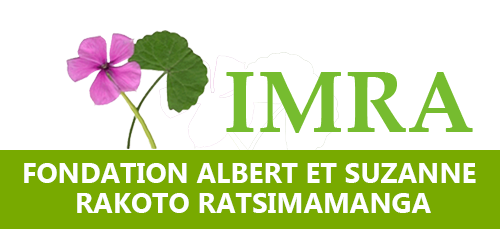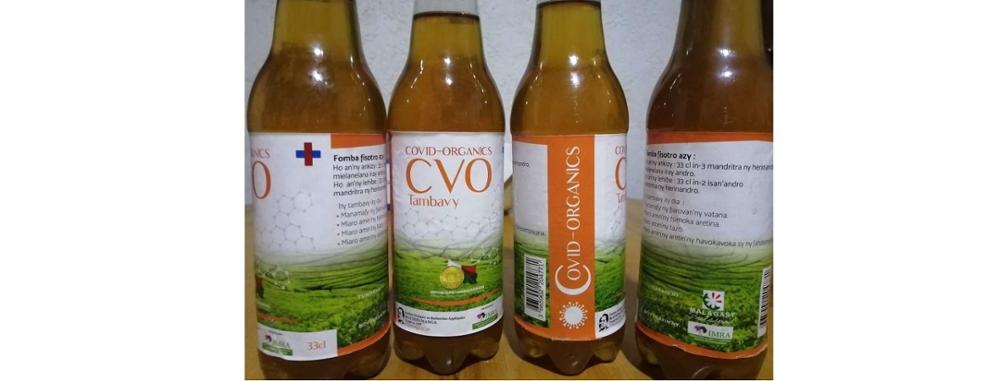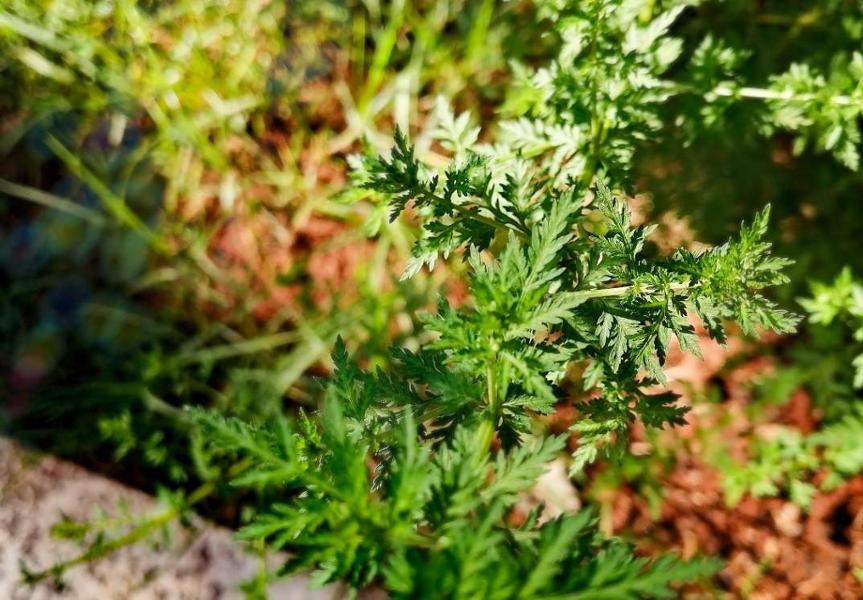
Albert Rakoto Ratsimamanga: A trusted name now associated with Covid Organics
The name Ratsimamanga returned to the spotlight on April 19, 2020, when the President of Madagascar announced the discovery and distribution of a remedy for Covid-19. This drinkable solution—an herbal tea developed by IMRA, the research institute founded by Albert Rakoto Ratsimamanga and his wife—has become a symbol of hope. For Malagasy people, the name is synonymous with effectiveness. For those unfamiliar with him, here’s a brief overview.
Ratsimamanga: A national icon
A member of the royal family, a doctor, and a renowned scientist
Albert Rakoto Ratsimamanga was the grandson of Prince Ratsimamanga, the uncle and advisor to Queen Ranavalona III. His aristocratic lineage shaped his destiny, but as a person, he remained humble and devoted to serving others. His passion for medicine was clear from an early age.
In the 1930s and 1940s, he became a physician with the *Assistance Médicale Indigène* (AMI) and later pursued advanced studies in France, earning doctorates in medicine and science, along with diplomas from the Institute of Exotic Medicine and the Pasteur Institute.
His groundbreaking work in biochemistry and hormone physiology, particularly adrenal corticosteroids, earned him international acclaim. In the 1970s, he returned to Madagascar and founded the CNRSP (Centre National de Recherches Scientifiques et Pharmaceutiques) and the IMRA (Institut Malgache de Recherches Appliquées).
A Nationalist and Diplomat
In 1935, Ratsimamanga founded the MDRM (Mouvement Démocratique pour la Rénovation de Madagascar), submitting its charter to the Prefecture of Paris. This movement was pivotal in Madagascar’s history, fighting for the nation’s freedom and independence, though it ended in bloodshed in 1947.
After Madagascar gained independence in 1960, Ratsimamanga served as the country’s ambassador to France until 1972 and established embassies in West Germany (1962), Sierra Leone (1963), the USSR (1973), and North Korea (1973). He also represented Madagascar at the WHO, UNESCO, and FAO. When he passed away on September 16, 2001, the nation lost a true hero.

A name trusted by Malagasy people
A globally renowned diabetes treatment
Upon his return to Madagascar around 1973, Ratsimamanga and his wife Suzanne Urverg founded IMRA, focusing on the research and development of phytomedicines and enhanced traditional remedies. IMRA reached its peak in 1998 when, after 25 years of research, Ratsimamanga and his team, in partnership with French laboratory Rhône-Poulenc-Rorer, developed the world’s first plant-based antidiabetic drug: MADEGLUCYL.
He was named "International Man of the Year 1997-1998," and by 1998, the institute had grown to include 102 staff members, including 32 researchers and technicians.
Medicines widely used by Malagasy People
Located in Avarabohitra Itaosy, Antananarivo, IMRA consists of a botanical garden, an animal facility, various research laboratories, and a medical center. Now known as the Albert and Suzanne Rakoto Ratsimamanga Foundation, it produces medicinal and cosmetic products as well as essential oils.
IMRA’s work spans areas such as phytochemistry, parasitic and cellular pharmacology, diabetology, pharmacodynamics, toxicology, and essential oil chemistry.
The Malagasy people widely use these affordable and effective products for daily health needs, such as calcium supplements and remedies for liver issues and kidney stones. These are affectionately known as "Ratsimamanga products," earning widespread trust and recognition. On October 2, 2012, the foundation was officially recognized as a public utility by Madagascar’s government.
Covid-Organics and the revival of Ratsimamanga’s legacy
What is Covid-Organics?
It was natural for the Malagasy government to turn to IMRA to develop and produce a remedy for Covid-19. The institute quickly created a drinkable solution, unveiled with great fanfare by the President of Madagascar on April 19, 2020.
This preventive and curative remedy, called Covid-Organics (CVO), is a herbal tea made from Artemisia. It reportedly proved effective on Malagasy Covid-19 patients and is slated for clinical trials in foreign laboratories.

Similarities with Artemisia-based proposals
On March 23, 2020, *La Maison de l’Artemisia* launched a project proposal advocating the use of Artemisia annua as a preventative measure against Covid-19. Their recommendation—a daily decoction of 10 grams per person for seven days—bears striking resemblance to the dosage of Covid-Organics.
In their proposal, the safety of Artemisia-based decoctions is supported by scientific evidence. The plant's active compounds have been shown to alleviate respiratory symptoms in diseases like SARS-CoV (2002) and Covid-19 (2020).
What is Artemisia?
Covid-Organics is based on Artemisia, a plant that has been used for centuries in traditional Chinese medicine. Chinese pharmaceutical researcher Tu Youyou was awarded the Nobel Prize in Medicine in 2015 for her work on malaria treatments involving Artemisia. However, the WHO and the National Academy of Medicine remain skeptical and recommend combining it with other medications.
Artemisia encompasses numerous species and is widely found in France, China, and the Sahara. It is consumed in various forms, including therapeutic teas and recreational spirits (e.g., absinthe, derived from Artemisia absinthium). Notably, Madagascar holds the largest stock of artemisinin globally, accounting for approximately 10% of worldwide production. The company Bionexx exports this product primarily to Asia and Europe.
On March 24, 2020, Lucile Cornet-Vernet, founder and vice-president of La Maison de l’Artemisia, a Paris-based association, sent a letter to several African countries advocating the use of Artemisia annua and Artemisia afra, two medicinal plants with antimalarial properties, to combat Covid-19. A dozen countries, including the Democratic Republic of Congo, the Central African Republic, Rwanda, Côte d’Ivoire, Benin, and Madagascar, reportedly gave their preliminary agreement to conduct clinical trials involving the plant.
An investigation by the pan-African weekly Jeune Afrique revealed that part of Malagasy President Andry Rajoelina’s speech about the Covid-19 remedy echoed passages from the aforementioned letter by La Maison de l’Artemisia, originally addressed to Madagascar’s Minister of Health, Ahmad Ahmad.

Reception of Covid-Organics
Medical and Scientific Opinions
While Artemisia shows promise in combating Covid-19, experts agree that in-vitro testing must precede trials on human patients. Catherine Hill, an epidemiologist, noted that trials had been initiated by the Max Planck Institute in Germany but no definitive conclusions had been reached as of yet.
The Malagasy Academy of Medicine issued a cautionary statement on April 20, 2020, warning of insufficient scientific evidence and advising caution, particularly with children.
Professor Stéphane Ralandison of Toamasina’s Faculty of Medicine also expressed skepticism, questioning the efficacy of Covid-Organics and the risk of administering it to healthy individuals.
Public Opinion
The Malagasy people generally trust the name Ratsimamanga, viewing him as a national hero whose legacy endures. However, some reactions to the government’s announcement were mixed. Critics argued that the President’s declaration was more self-promotional than informative, and many called for clearer explanations from scientific experts.
The announcement that the remedy would be administered to schoolchildren without parental consent also drew concern.
Nevertheless, IMRA and the government’s efforts have been praised by many. In the streets, people lined up with bottles to receive doses of Covid-Organics, eager to find out where they could obtain it.
The Mayor of Antananarivo concluded in a press release that the Malagasy population is young and resilient, with strong immune systems shaped by exposure to epidemics such as malaria, influenza, cholera, and plague. "Madagascar will overcome this virus!"
© Détours Madagascar - 24 Avril 2020